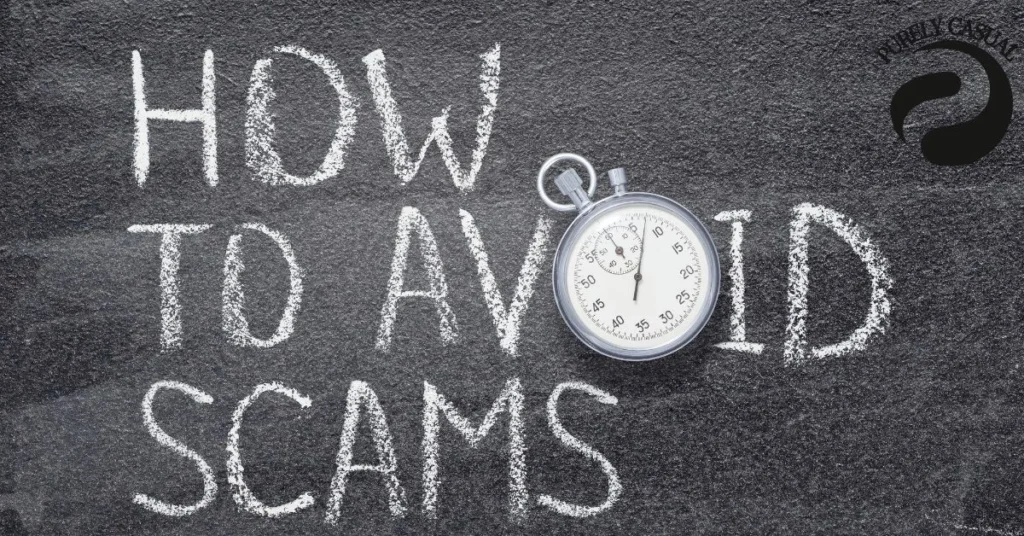Online scams are on the rise, targeting people with fake emails, invoices, and phone calls. One common example is the 877-808-1903 scam. This scam involves sending a fraudulent email that looks like a legitimate invoice, usually from well-known services like PayPal.
In this scam, victims receive an email that claims they owe money for something they never purchased, such as a $599 Target gift card. The email looks official, using real company logos and professional wording to trick people. It includes the phone number 877-808-1903, urging the recipient to call and resolve the issue.
Many people, especially those who regularly use PayPal or shop online, may panic and respond without thinking. Scammers count on this urgency. When victims call the number, they are connected with a person pretending to be from customer service. The scammer then asks for personal and financial information, like credit card numbers or account passwords.
This is a typical phishing attempt, where scammers use fear or confusion to get people to act quickly. Unfortunately, this fraudulent phone number is just one example of how easily scammers can impersonate trusted companies. This makes it difficult for the average person to identify a scam email or phone call.
As scams like this become more common, it’s important to understand how they work. By recognizing the signs of a PayPal invoice scam and other types of phishing, you can protect yourself and avoid falling victim to fraud.
Here’s a table summarizing key aspects and facts about the 877-808-1903 scam and related phishing attempts:
| Aspect | Details |
|---|---|
| Scam Type | Phishing email and phone scam |
| Scam Number | 877-808-1903 |
| Common Target | Online shoppers, especially PayPal users |
| Fake Invoice Example | Claims of owing money for items like a $599 Target gift card |
| Tactics Used | – Impersonation of legitimate companies – Creating a sense of urgency – Social engineering |
| Email Red Flags | – Unexpected invoices – Urgency in language – Slightly altered sender email addresses |
| What Happens When You Call | Speak with a scammer posing as customer service, who will ask for personal and financial information |
| Signs of Phishing | – Unfamiliar sender – Suspicious links – Requests for sensitive information |
| Protective Measures | – Verify sources – Use Multi-Factor Authentication (MFA) – Monitor financial accounts |
| Actions If Targeted | – Stop communication – Change passwords – Report to authorities |
| Reporting Mechanisms | – Forward phishing emails to the company’s fraud department – Report phone scams to the FTC |
| Recovery Steps | – Contact bank or credit card company – Monitor credit reports – Seek professional help if needed |
This table provides a concise overview of the scam, how it operates, and ways to protect yourself against it.
Table Of Contents
How the Phone Scam Works: Unpacking the Tactics
Phishing Emails and Fake Invoices
The scam begins with a phishing email that looks like a legitimate invoice from a trusted company. Scammers often use services like PayPal or major retailers to make their emails appear real. These emails might claim that you’ve made a purchase you don’t remember, such as a $599 Target gift card.
The email usually contains all the elements of a real invoice, including company logos and proper formatting. This makes it hard to tell at first glance that it’s fake. The goal is to get you to believe that there’s an issue with your account, so you will act quickly without thinking.
Social Engineering and Psychological Tricks
This scam relies heavily on social engineering tactics. Social engineering is when scammers manipulate people into taking actions they wouldn’t normally take. In this case, the email creates a sense of urgency by telling you to call the provided number, 877-808-1903, immediately.
Scammers know that when people are in a state of panic, they are more likely to make mistakes. By creating fear or confusion, the scammer tricks you into calling the number. Once on the phone, they act like customer service representatives and ask for your personal or financial details.
Phone Call Scams: What Happens When You Call
If you dial the number, you will speak to someone pretending to work for the company that sent the fake invoice. This person might tell you that your account has been compromised. They’ll then ask for sensitive information, such as your PayPal login details or credit card number, under the pretense of “fixing the problem.”
The scammer may even try to convince you to make a payment to resolve the fake issue. They are skilled at sounding professional and making the situation seem urgent. Unfortunately, once they have your information, they can use it to steal your money or identity.
Red Flags to Watch For
There are several red flags that can help you spot a phishing email or scam call. If you receive an unexpected invoice, especially for something you didn’t buy, be cautious. Emails that create urgency or demand immediate action are often scams.
Look closely at the sender’s email address. Scammers often use addresses that are slightly off from the real company’s domain. Also, never trust phone numbers included in suspicious emails, especially ones like 877-808-1903. Always verify by contacting the company directly through their official website.
How to Protect Yourself Against Scams Like This
Verify the Source of Emails and Invoices
If you receive an unexpected email, always verify it before taking any action. Log in to your PayPal, bank, or retailer account directly through their website, not through links in the email. This will help you see if the invoice or alert is real.
Be cautious of any invoice that doesn’t seem right. If you didn’t buy a $599 Target gift card, don’t assume the email is correct. Scammers rely on people’s reactions to confusion.
Use Multi-Factor Authentication (MFA)
Enabling multi-factor authentication (MFA) adds an extra layer of security to your accounts. With MFA, even if scammers have your password, they won’t be able to access your account without a second verification step. This helps prevent unauthorized access.
Most services like PayPal, banks, and email providers offer MFA. It’s easy to set up and makes your accounts much harder to hack.
Never Call Suspicious Phone Numbers
If an email asks you to call a number like 877-808-1903, be suspicious. Never call the number directly from a phishing email. Instead, visit the official website of the company and use their verified customer service number.
Scammers use fake phone numbers to trick you into sharing personal information. Always make sure the number you’re calling is legitimate.
Monitor Your Financial Accounts
Keep a close eye on your bank and credit card statements for any suspicious transactions. If you spot anything unusual, report it to your bank or card provider immediately. Setting up alerts for transactions can help you catch fraud quickly.
Regularly checking your accounts is a simple way to spot issues before they become serious. Early detection can help prevent further damage.
Report Scam Emails and Phone Numbers
If you receive a scam email or come across a suspicious phone number like 877-808-1903, report it. You can report phishing emails to companies like PayPal by forwarding the email to their security team. You can also report scam phone numbers to the Federal Trade Commission (FTC).
Reporting scams helps stop scammers and protect others from falling victim. It’s a small step that can make a big difference.
Also read:https://purelycasual.com/929-577-6600/
What to Do If You’ve Been Targeted or Fell for the Scam
Stay Calm and Take Immediate Action
If you realize you’ve interacted with the scam, stay calm. Acting quickly can limit the damage. The first step is to stop any communication with the scammers, especially if you’ve been on the phone with them.
If you gave them any financial information, contact your bank or credit card company immediately. They can help you freeze your accounts or reverse fraudulent transactions. It’s important to act fast to prevent further unauthorized charges.
Change Your Passwords and Secure Accounts
If you clicked on any links or shared your login details, change your passwords right away. Start with your PayPal account or the account that was targeted, and then move on to other important accounts like your email or bank.
Use strong, unique passwords that are hard to guess. Also, enable multi-factor authentication (MFA) to add extra security. This makes it harder for scammers to access your accounts in the future.
Report the Scam to Authorities
After securing your accounts, report the scam to the proper authorities. For phishing emails, you can report them directly to companies like PayPal by forwarding the email to their fraud department. You can also report phone scams to the Federal Trade Commission (FTC).
Reporting the scam helps raise awareness and prevents others from falling victim. The more people report these incidents, the harder it becomes for scammers to operate.
Monitor Your Credit and Financial Activity
If you gave out personal information, it’s a good idea to monitor your credit for any signs of fraud. You can request a credit report from major credit bureaus to check for any suspicious activity. Some services offer credit monitoring, which can alert you to unusual changes.
Keeping an eye on your financial accounts and credit reports can help you catch identity theft early. This is especially important after falling for a scam, as scammers may try to misuse your information later.
Seek Professional Help if Necessary
If you’re unsure how to handle the situation or feel overwhelmed, seek professional help. Credit monitoring services, identity theft protection, and cybersecurity experts can offer support. They can guide you through securing your information and preventing further harm.
It’s important to protect yourself and take every step necessary to prevent long-term damage from the scam.
Conclusion
Online scams like the 877-808-1903 case are becoming more common and harder to detect. However, by staying informed and recognizing the signs of phishing emails and scam phone numbers, you can protect yourself. Always verify unexpected emails, avoid calling suspicious numbers, and use tools like multi-factor authentication to secure your accounts.
If you’ve been targeted by a scam, act quickly to secure your information. Change passwords, report the incident, and monitor your accounts for any suspicious activity. Taking these steps can prevent further damage and protect your financial well-being.
Finally, don’t hesitate to share your experience. By reporting scams and discussing them with others, you can help raise awareness and protect more people from falling victim. Staying vigilant and informed is the best way to stay safe online.
FAQs
What is the phone scam related to 877-808-1903?
The phone scam involves phishing emails that look like legitimate invoices from trusted companies. These emails claim you owe money for a purchase, such as a $599 Target gift card, and ask you to call the number 877-808-1903. Scammers then try to steal your personal and financial information over the phone.
How do I know if an email is a scam?
Scam emails often include unexpected invoices, grammatical errors, or pressure to act immediately. They might use logos and formatting that mimic legitimate companies. Always check the sender’s email address and avoid clicking on any links or calling phone numbers provided in suspicious emails.
What should I do if I receive a suspicious email?
Do not interact with the email. Instead, log in to the company’s official website (such as PayPal) directly to verify if there’s a legitimate issue. You can also report the phishing email to the company’s fraud department by forwarding it.
What happens if I call the suspicious number?
If you call the number, you will likely speak to a scammer pretending to be a customer service representative. They may ask for personal information like your PayPal login, credit card number, or banking details to “fix the issue.” Do not provide any information.
How can I protect myself from these types of scams?
Verify the source of any email or phone call before responding. Use multi-factor authentication (MFA) on your accounts, never call phone numbers from suspicious emails, and regularly monitor your financial accounts for any unusual activity.
What should I do if I fall for the scam?
Immediately stop communication with the scammer. Change the passwords on your affected accounts, notify your bank or credit card company, and report the scam to the relevant authorities, such as PayPal and the Federal Trade Commission (FTC).
How do I report a scam like this?
You can report phishing emails to the company being impersonated by forwarding the email to their fraud department (e.g., PayPal’s fraud team). For phone scams, you can also report the number to the Federal Trade Commission (FTC).
Can I get my money back if I was scammed?
If you provided financial information and lost money, contact your bank or credit card company immediately. Many institutions have fraud protection policies in place and may be able to help reverse charges or prevent further losses.
What is multi-factor authentication (MFA), and how does it help?
Multi-factor authentication (MFA) adds an extra step to log into your account, such as a code sent to your phone. This extra security layer makes it harder for scammers to access your accounts, even if they have your password.
Should I warn others about the scam?
Yes, sharing your experience can help others avoid falling victim to the same scam. You can report the scam online, talk to family and friends, or leave reviews on scam alert sites to raise awareness.







